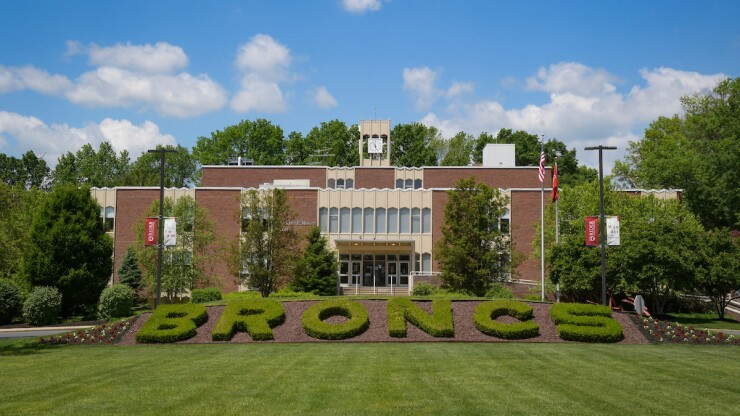Rider University, a small private college outside of Trenton, New Jersey, is trying to raise additional funds to help an ongoing liquidity crunch.
College officials asked bondholders for permission to borrow against the mortgage on the school's main campus in Lawrenceville, New Jersey, according
"In the spirit of good partnership with our current bondholders, we have been in discussion with them regarding this, and we understand that a majority of them are willing to consent to the amendment," said Kristine Brown, a spokesperson for the school.

The proposal underscores the mounting challenges small schools face to make ends meet as they contend with declining enrollments and rising costs. Those pressures have driven colleges across the U.S. to
Real estate is typically the largest asset a school owns. Rider's primary campus, for instance, was appraised at more than $230 million, according to Moody's Ratings. The school is proposing an amendment to a current loan and mortgage agreement that would allow it to borrow an additional $15 million of debt on parity with liens on the mortgage.
That amount would rise to $20 million if the school is able to sell its Princeton campus, which once housed its renowned choir program. Efforts to offload that real estate have been mired in litigation, though the school is working toward a settlement, Brown said.
Selling campuses can be tricky as a school's closure can devalue real estate, and it can take time to find a buyer. After Cazenovia College shut its doors in upstate New York in mid-2023, its campus was leased to the state, which used the facilities to train police cadets while it searched for a buyer. The campus was still up for sale as of early July.
Additionally, the amendment would allow Rider to borrow $25 million of debt subordinate to the mortgage liens. Utilizing the new borrowing capacity could drastically increase the school's debt. Rider currently has about $109 million of municipal bonds outstanding, according to data compiled by Bloomberg.
Moody's rates its existing bonds Caa1, seven steps below investment grade. The ratings firm cited ongoing operating deficits, which are expected to continue through at least 2025, and "severely" limited liquidity in their rationale, according to a January report. S&P Global Ratings rates the university's bonds, issued through the Wisconsin-based Public Finance Authority and New Jersey Educational Facilities Authority, BB with a negative outlook.
Rider's
The school had a full-time equivalent enrollment of 3,731 in 2024, according to S&P.





